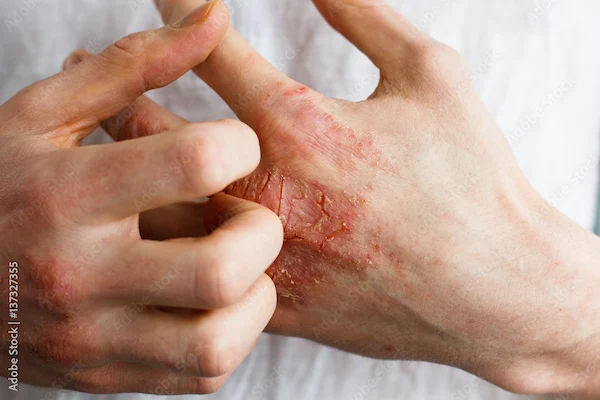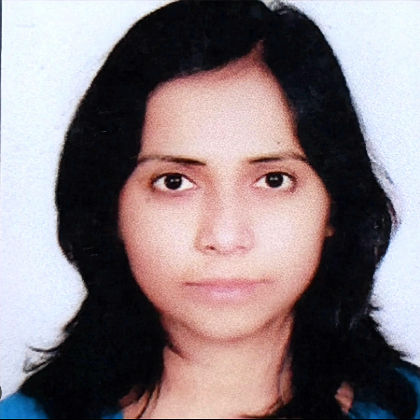Eczema and Dry Skin Management Tips
Know what eczema, dry skin are. Common symptoms, causes of dry skin and eczema. Learn how to manage them.

Written by Dr. J T Hema Pratima
Reviewed by Dr. Rohinipriyanka Pondugula MBBS
Last updated on 1st Aug, 2025

Introduction
Dealing with eczema and dry skin can be frustrating, uncomfortable, and sometimes painful. If you or a loved one struggles with these conditions, know that you're not alone—many people experience them, and with the right care, symptoms can be managed effectively.
This article will help you understand eczema and dry skin, their causes, symptoms, and practical ways to keep your skin healthy and comfortable.
What Is Eczema?
Eczema (also called atopic dermatitis) is a chronic skin condition that causes red, itchy, and inflamed patches on the skin. It often appears in children but can affect adults as well. Eczema is not contagious, meaning you can’t catch it from someone else.
Common Symptoms of Eczema
The common symptoms of eczema include:
Dry, sensitive skin
Intense itching (especially at night)
Red or brownish patches (common on hands, feet, ankles, wrists, neck, and face)
Small, raised bumps that may leak fluid when scratched
Thickened, cracked, or scaly skin over time
Consult a top dermatologist for the best advice
What Causes Eczema and Dry Skin?
The exact cause of eczema is unknown, but it’s linked to a combination of genetic and environmental factors.
Some common triggers include:
Dry weather or low humidity
Harsh soaps, detergents, or skincare products
Allergens (dust mites, pollen, pet dander)
Stress and anxiety
Certain fabrics (like wool or synthetic materials)
Sweating or overheating
Food allergies (in some cases)
Dry skin, on the other hand, is often caused by:
Lack of moisture in the air (especially in winter)
Hot showers or baths (which strip natural oils)
Dehydration (not drinking enough water)
Ageing (skin produces less oil over time)
How to Manage Eczema and Dry Skin
While eczema has no permanent cure, you can control flare-ups and keep your skin healthy with these simple tips:
1. Moisturise Regularly
Use fragrance-free, hypoallergenic moisturisers (like creams or ointments) right after bathing.
Look for ingredients like ceramides, glycerin, or hyaluronic acid, which help lock in moisture.
Avoid lotions with alcohol or strong fragrances, as they can irritate the skin.
2. Choose Gentle Skin Care Products
Some of the tips for keeping gentle skin include:
Use mild, soap-free cleansers instead of harsh soaps.
Avoid scrubbing—pat your skin dry gently with a soft towel.
Wash with lukewarm water (not hot).
3. Avoid Triggers
Triggers can be avoided by:
Wear soft, breathable fabrics like cotton instead of wool or synthetic materials.
Keep your home humidified in dry weather.
Manage stress through relaxation techniques like deep breathing or yoga.
4. Stay Hydrated
Drink plenty of water to keep your skin hydrated from within.
Eat omega-3-rich foods (like fish, flaxseeds, and walnuts) to support skin health.
5. Don’t Scratch
Avoid scratching in the following ways:
Scratching worsens eczema and can lead to infections.
Keep nails short and wear cotton gloves at night if you tend to scratch.
Apply a cold compress to itchy areas for relief.
6. Use Prescribed Treatments (If Needed)
Some of the prescribed treatments include:
Topical steroids (prescribed by a doctor) can reduce inflammation.
Antihistamines may help with itching, especially at night.
If symptoms persist, consult a dermatologist for advanced treatments.
When to See a Doctor
While most cases of eczema and dry skin can be managed at home, you should consult a doctor if:
The rash is spreading or worsening despite home care.
There’s pus, swelling, or yellow crusting (signs of infection).
The itching is severe and disrupts sleep or daily life.
Final Thoughts
Living with eczema or dry skin can be challenging, but with the right care, you can keep flare-ups under control. Moisturising daily, avoiding triggers, and using gentle skincare products can make a big difference.
Consult a top dermatologist for the best advice
Consult a top dermatologist for the best advice

Dr. K Chetana
Dermatologist
10 Years • MBBS, MD ( Dermatology)
Hyderabad
Apollo 24|7 Clinic, Hyderabad

Dr Usha B K
Dermatologist
4 Years • MBBS,MD (Dermatology, Venereology & Leprosy), DNB (Dermatology, Venereology & Leprosy), Fellowship in Trichology
Bangalore
Apollo 24|7 Clinic - Karnataka, Bangalore
(50+ Patients)

Dr. Hemalatha Naidu M
Dermatologist
5 Years • MBBS, MD (Dermatology)
Bangalore
Apollo 24|7 Clinic - Karnataka, Bangalore
(275+ Patients)

Dr. Bhavyashree U G
Dermatologist
14 Years • MBBS, MD Dermatology, Venereology & Leprosy
Bengaluru
Bhavyas skin and hair center, Bengaluru

Dr. Somshukla Ray
Dermatologist
10 Years • MBBS, MD (Dermatology,Venerology & Leprosy), DNB (Dermatology,Venerology & Leprosy)
Kolkata
MCR SUPER SPECIALITY POLY CLINIC & PATHOLOGY, Kolkata
(25+ Patients)
